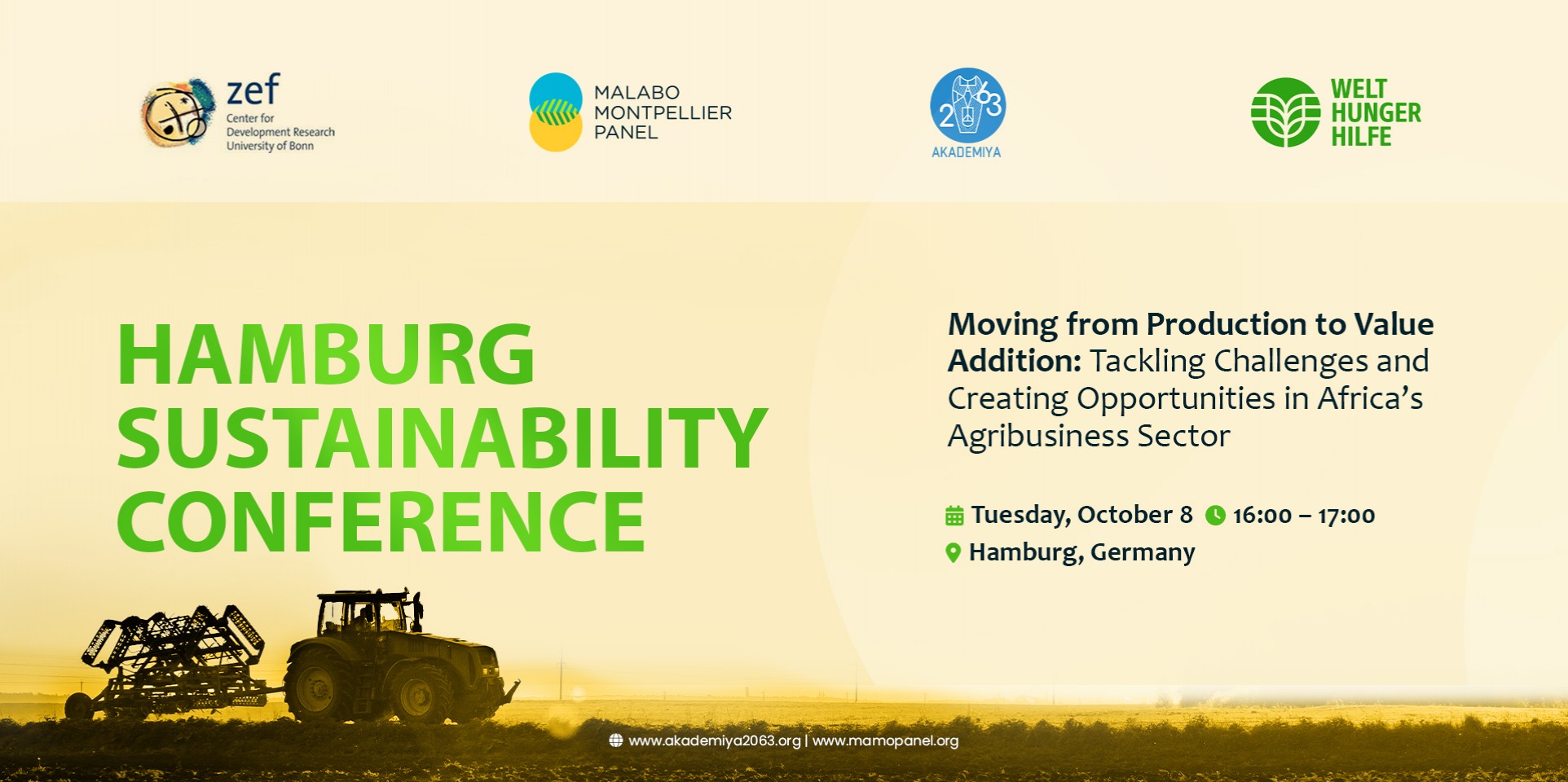Moving from Production to Value Addition: Tackling Challenges and Creating Opportunities in Africa’s Agribusiness Sector
Organizers: AKADEMIYA2063 (Malabo Montpellier Panel), Center for Development Research (ZEF)/University of Bonn, and Welthungerhilfe
A growing and increasingly young population, urbanization, and an emerging middle class are driving structural changes in Africa’s agrifood systems with a direct bearing on the dynamics of rural-urban linkages and food environments, including food consumption patterns. These trends are also fueling the nutrition transition, igniting and accelerating shifts in food consumption patterns and physical activity and giving rise to a prevalence of the triple burden of malnutrition. Although these shifts happen at a varying speed and degree across countries, it is clear that diets are shifting from traditional foods to higher-value products, including dairy, meat, fish, vegetables and fruits, but also to more convenient lightly and highly/ultra-processed foods.
The growth in demand for nutritious and varied food can raise incomes and improve livelihoods for the continent’s smallholders, but only if they can access consumer markets. The agrifood processing sector is essential to connect agrifood system actors and transform the crops produced by farmers into the foods demanded by consumers. A healthy and competitive processing sector will generate employment opportunities along the value chain, unlock farmers’ access to growing and lucrative urban and global markets, significantly reduce food loss and waste, and allow Africa to meet more of its food demand from local production. Local processors require sufficient access to finance, as well as technical and business knowledge, to ensure competitive productivity levels and high-quality products.
At the same time, these shifts in diets can also have negative consequences. In a scenario where rapid urbanization occurs without sustained and equally rapid economic growth, urban undernutrition levels are set to rise and coexist with rising overweight and obesity levels. Specifically, there is mounting evidence on the role of highly processed foods in the development of overweight, obesity, and related non-communicable diseases.
This session will identify investment and policy priorities to boost the performance of Africa’s agrifood sectors beyond the cultivation of raw materials towards the production of higher-value, nutritious and affordable food products, including adding value through food processing, reducing post-harvest losses, increasing supply-chain efficiencies and fostering competitive integration in local and global markets. Given their effects on poverty (SDG 1), employment (SDG 8) and hunger (SDG 2), such investments and policies will be vital to meet global and African development goals, as agreed in the 2030 Agenda, the commitments made in countries’ UNFSS national pathways and the African Union’s CAADP agenda.
SPEAKERS
Prof. Matin Qaim, Director, Center for Development Research (ZEF), University of Bonn
Dr. Ousmane Badiane, Executive Chairperson, AKADEMIYA2063
Mr. Matthias Mogge, CEO, Welthungerhilfe
INQUIRIES
Ms. Tsitsi Makombe, Director, External Relations, AKADEMIYA2063: tmakombe@akademiya2063.org

